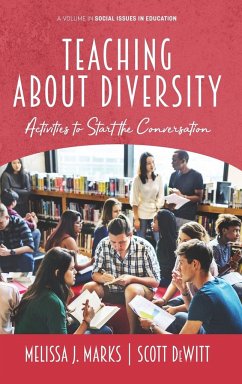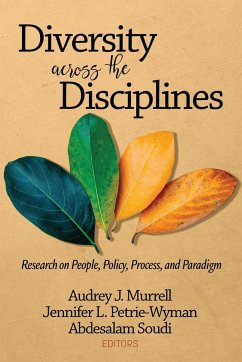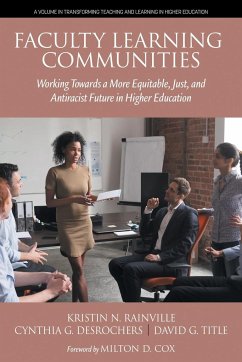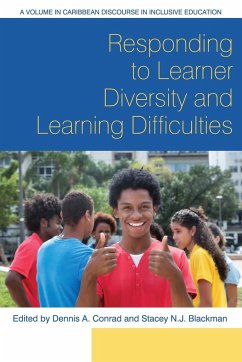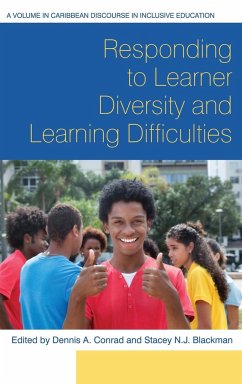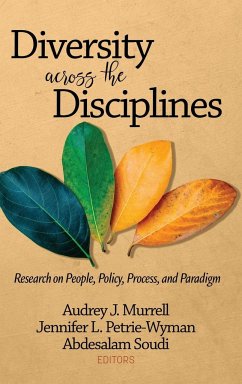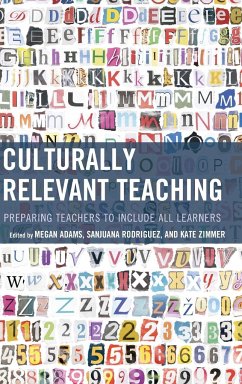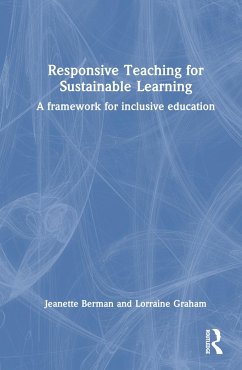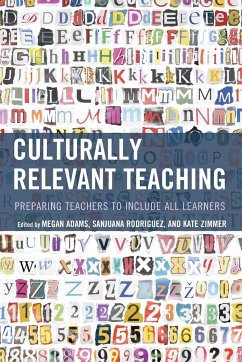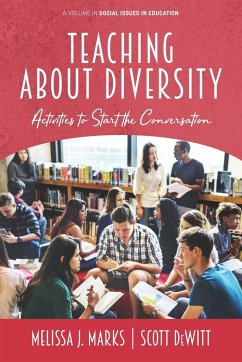
Teaching About Diversity
Activities to Start the Conversation
Versandkostenfrei!
Versandfertig in 1-2 Wochen
56,99 €
inkl. MwSt.
Weitere Ausgaben:

PAYBACK Punkte
28 °P sammeln!
This book offers easily implemented strategies for use with secondary and undergraduate students to promote greater engagement with the realities of diversity and commitment to social justice within their classrooms. Defining diversity broadly, the book provides effective pedagogical techniques to help students question their own assumptions, think critically, and discuss issues within race, religion, ethnicity, gender, sexual orientation, socioeconomic status, and ability. The K-12 student population is increasingly diverse in terms of race, ethnicity, language, religion, socio-economic statu...
This book offers easily implemented strategies for use with secondary and undergraduate students to promote greater engagement with the realities of diversity and commitment to social justice within their classrooms. Defining diversity broadly, the book provides effective pedagogical techniques to help students question their own assumptions, think critically, and discuss issues within race, religion, ethnicity, gender, sexual orientation, socioeconomic status, and ability. The K-12 student population is increasingly diverse in terms of race, ethnicity, language, religion, socio-economic status, and family structure. However, the overwhelming majority of teachers continues to come from White, non-urban, middle class backgrounds (Fletcher, 2014; Hughes et al., 2011) These differences can have serious repercussions for student learning. Non-majority students who feel that their culture or background is not acknowledged or accepted at school are likely to disengage from expected academic and social activities (Hughes et al., 2011). Concurrently, the majority students remain unaware of privilege and ignorant of societal systemic discrimination. In order to teach for social justice, ideas regarding power structure, privilege, and oppression need to be discussed openly. Fear of upsetting students or not knowing how to handle the issue of social justice are commonly heard reasons for not discussing "difficult" subjects (Marks, Binkley, & Daly, 2014). However, when teachers choose not to discuss topics within diversity, students assume that the topics are taboo, dangerous, or unimportant. These assumptions impede students' abilities to ask important questions, learn how to speak about issues effectively and comprehend the complex challenges woven into current national conversations.





